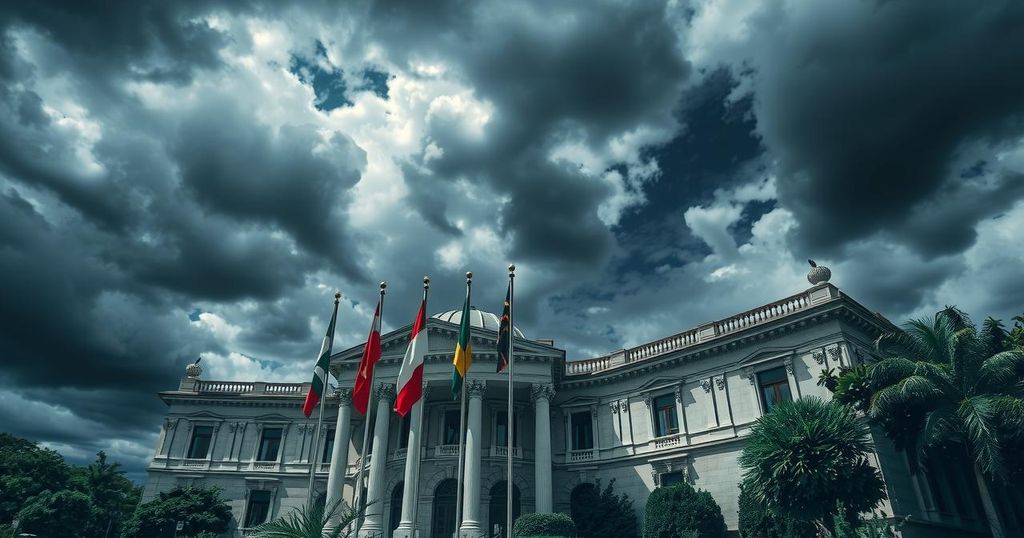South Africa Faces Diplomatic Crisis Following Ambassador’s Expulsion

South Africa is currently embroiled in a diplomatic crisis following U.S. Secretary of State Marco Rubio’s designation of Ambassador Ibrahim Rasool as “persona non grata.” This incident highlights existing tensions between the ANC and the U.S., leading to concerns about South Africa’s foreign relations and economic stability, particularly regarding trade agreements under the AGOA. The situation calls for a strategic recalibration of foreign policy to mend international relations.
South Africa is currently facing a diplomatic crisis following the expulsion of its ambassador to the United States, Ibrahim Rasool, after U.S. Secretary of State Marco Rubio labeled him as “persona non grata.” This incident has exacerbated existing tensions and has led to considerable scrutiny on South Africa’s foreign policy, particularly regarding its relationship with the United States.
The tensions arose due to significant policy disagreements between the ruling African National Congress (ANC) and the U.S. government. Analysts, including Kylie Krill, CEO of AfriForum, have criticized the ANC’s diplomatic decisions, warning that such errors could undermine South Africa’s international reputation and political stability. The expulsion reflects wider concerns about the ANC’s handling of critical foreign policy matters.
While Rubio’s comments impacted Rasool’s position, they also highlighted the ANC’s failure to manage foreign relations effectively. In her statement, Tammy Bruce, spokesperson for the State Department, emphasized the expectations for respectful communication from representatives. Rasool’s previous remarks criticizing former President Trump contributed to the deterioration of diplomatic relations, with accusations of exacerbating racial tensions under Trump’s administration.
The diplomatic rift has deeper roots, as tensions between the U.S. and South Africa have grown. Former President Trump’s accusations against South Africa’s land reform policies, perceived as discriminatory towards white farmers, have aggravated this relationship. This situation has resulted in a narrative where Trump has suggested expedited citizenship for these farmers as a response to perceived injustices.
Additionally, Rasool’s critiques during a strategic discussion of U.S. policies concerning Africa have led to further backlash from the U.S. administration. South African political reactions to the ambassador’s expulsion have varied significantly, with some expressing outrage at the ANC’s approach to diplomacy. Analysts such as Sandile Swana have stressed the need for the ANC to reassess its foreign policy to better reflect South Africa’s global position.
The fallout from this diplomatic crisis is likely to have economic ramifications as well. South Africa, with a historical commitment against apartheid, now faces potential challenges in securing trade agreements, particularly under the African Growth and Opportunity Act (AGOA), crucial for its export economy.
U.S. financial institutions, including Franklin Resources, JP Morgan Chase, and Wells Fargo, have begun divesting from South African bonds due to these strained relations. Franklin Resources reported a 9% reduction in its holdings, which adversely affects South Africa’s bond market and investor confidence.
In summary, South Africa’s diplomatic crisis stemming from the expulsion of Ambassador Ibrahim Rasool underscores the existing tensions between the ANC and the United States. Analysts have voiced concerns over the potential adverse impacts on international relations and economic stability, particularly regarding trade agreements. As South Africa navigates this complex political environment, it remains to be seen whether the ANC will seize the opportunity for a strategic policy shift or maintain its confrontational stance. The future of South Africa’s foreign relations hinges on how it addresses these significant challenges.
Original Source: evrimagaci.org







